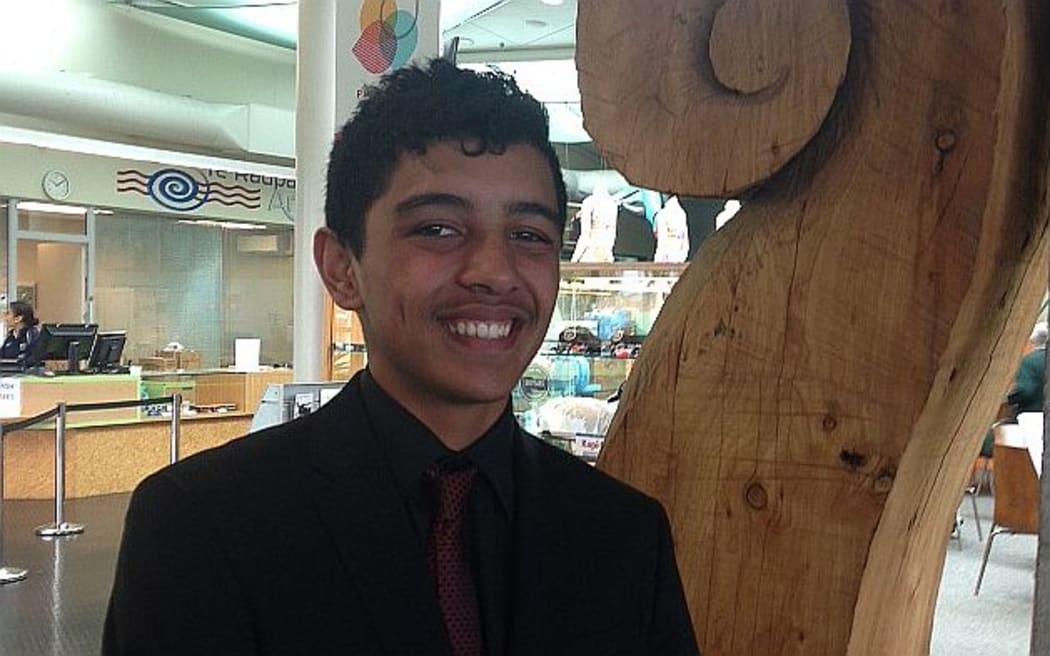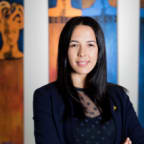Rangatahi in the Ngā Manu Kōrero Speech national secondary school speech competition believe they are doing their bit to keep te reo Māori alive.
The contest began 50 years ago to encourage the eloquent use of English by Māori students. Now it's about keeping Te Reo alive.
Today marked the final day of the competition, which was held at Te Rauparaha stadium in Porirua, where more than 60 students took the stage this week.

Year 10 student at Manukura in Palmerston-North, Te Mauri McLarn Isaac-Sharland, is competing for the junior Maori Rawhiti Ihaka trophy. Photo: Supplied
Te Kura Kaupapa Māori o Tuia Te Matangi student Raven Li Malcolm, from Nelson, is a te reo Māori speaker who has chosen to compete in the junior English section.
True to the original focus of Ngā Manu Kōrero, Raven Li said she wanted to prove Māori could communicate well in the English language.
Tumai Cassidy, a year 9 student at Dunedin's King's High School, said he believed the competition today was more about reviving te reo Māori.
He knew first hand about the desire to keep the Māori language alive.
"My parents have never spoken English to me in my whole life.
"I've only ever spoken Māori to my parents. I've met a lot of people who haven't been as lucky growing up with te reo at home."
He said Ngā Manu Kōrero celebrated the Māori language, and encouraged those who could not speak to learn.
Year 10 student at Manukura in Palmerston North, Te Mauri McLarn Isaac-Sharland, competed for the junior Māori Rāwhiti Ihaka trophy.
"My kaupapa is 'He kai kei aku ringa', which means there is food in my hands, from my ancestors. And it's like a question: Are you going to eat it or let it perish?"
He said he got into the competition because he believed the Māori language was dying.
"I want rangatahi to get into this Māori competition."
His Māori language teacher, Te Huarahi Rask brought a van load of students from Palmerston North to Porirua this morning to support Te Mauri.
"I've heard a lot of te reo Māori going around since I've been here. I think that's a good thing for our language. That's what Manu Kōrero does for our language."
"It helps the students appreciate what our ancestors have done for them."
Aareta Mohi came from Palmerston North too, to support a schoolmate from Te Kura Kōhine o Te Papaioiea.
She competed in the regional competition and said it was a great experience.
"It's just to get out rangatahi out there, to show the world that Maori are actually pretty cool and te reo Maori is really good."
Ngāi Tūhoe kuia Hema Temara did not believe the Māori language was dying.
She said seeing the children at Ngā Manu Kōrero proved te reo lived on, and said their speaking it proved they had an in-depth clarity of who they were.
"This is a revival of our language," she said.
"Our children from secondary school and soon to be adults. They are the ones that will carry our culture and make it alive."
Māori Development Minister Te Ururoa Flavell laid down a challenge at the event for Māori speakers to use te reo everywhere.


